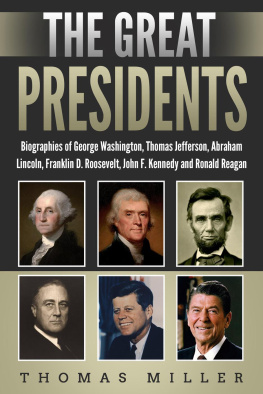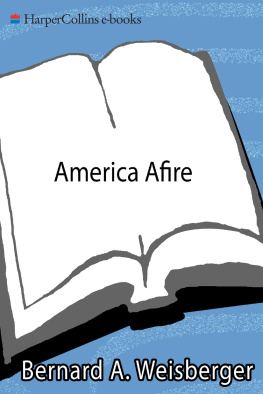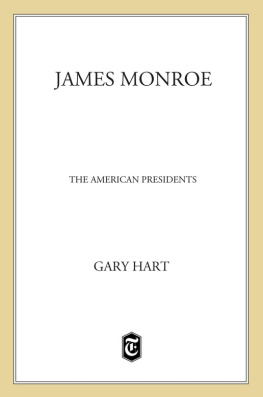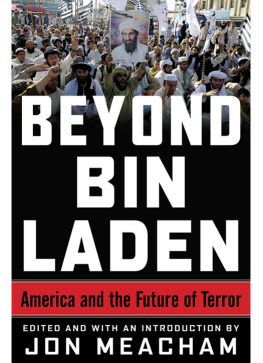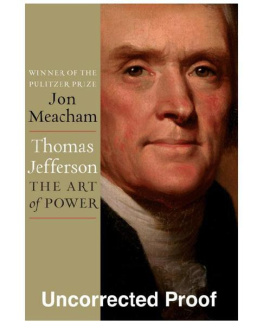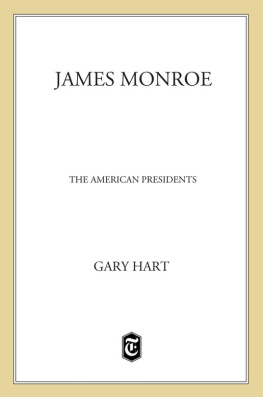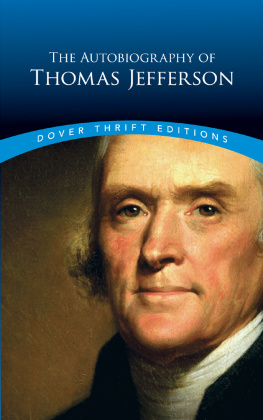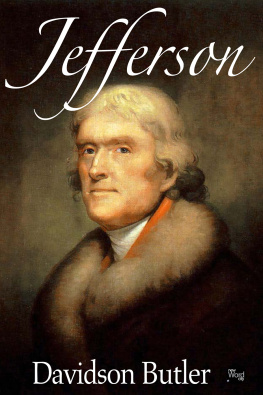THE GREAT DIVIDE
ALSO BY THOMAS FLEMING
NONFICTION
1776: Year of Illusions
Washingtons Secret War: The Hidden History of Valley Forge
Duel: Alexander Hamilton, Aaron Burr and the Future of America
The Perils of Peace: Americas Struggle for Survival After Yorktown
The Intimate Lives of the Founding Fathers
A Disease in the Public Mind
FICTION
Liberty Tavern
Dreams of Glory
Remember the Morning
The Officers Wives
Time and Tide
The Secret Trial of Robert E. Lee


Copyright 2015 by Thomas Fleming
All rights reserved. No part of this publication may be reproduced, stored in a retrieval system, or transmitted, in any form or by any means, electronic, mechanical, photocopying, recording, or otherwise, without the prior written permission of the publisher.
Printed in the United States of America.
For information, address Da Capo Press, 44 Farnsworth Street, 3rd Floor, Boston, MA 02210.
Designed by BackStory Design
Set in 11 point Adobe Caslon by Marcovaldo Productions, Inc. for the Perseus Books Group
Cataloging-in-Publication data for this book is available from the Library of Congress.
First Da Capo Press edition 2015
ISBN: 978-0-306-82236-0 (eBook)
Published by Da Capo Press
A Member of the Perseus Books Group
www.dacapopress.com
Da Capo Press books are available at special discounts for bulk purchases in the U.S. by corporations, institutions, and other organizations. For more information, please contact the Special Markets Department at the Perseus Books Group, 2300 Chestnut Street, Suite 200, Philadelphia, PA, 19103, or call (800) 810-4145, ext. 5000, or e-mail special..
10 9 8 7 6 5 4 3 2 1
To Alice
To see this country happyis so much the wish of my soul nothing on this side of Elysium can be placed in competition with it.
GEORGE WASHINGTON
Rather than it [The French Revolution] should have failed, I would have seen half the earth desolated. Were there but an Adam and Eve left in every country, and left free, it would be better than as it now is.
THOMAS JEFFERSON
The government we mean to erect is intended to last for ages.
JAMES MADISON
Contents
A CONFLICT BETWEEN GEORGE Washington and Thomas Jefferson? Most Americans are unaware that such discord ever existed. Numerous historians have explored Jeffersons clash with Alexander Hamilton. But little has been written about the differences that developed between the two most famous founding fathers.
Two years after her husbands death, Martha Washington told a visiting congressman that she regarded Mr. Jefferson as one of the most detestable of mankind, and saw his election as president as the greatest misfortune our country has ever experienced. The congressman agreed with her and recorded these opinions in his diary.
A series of political clashes had gradually destroyed the friendship and mutual respect the two men had enjoyed at the start of Washingtons presidency. Ultimately, they became enemies. Small, slight James Madison, whose brilliant political theorizing won the admiration of both men, was forced to choose between these two tall antagonists.
Eleven years older than Jefferson, Washington had almost no formal education. He spent his teenage years as a hardworking surveyor. Jefferson devoured books and ideas at the College of William and Mary. At the age of twenty-two, Washington went to war against the French and Indians in Virginias western wilderness, and became the colonys best known soldier. Jefferson studied law and became a passionate revolutionist when Americas grievances against British rule exploded into rebellion.
During the eight-year struggle for independence, Washington rose to worldwide fame as the commander of the American Continental Army. He crowned his victory by rejecting pleas to banish the bankrupt Continental Congress and become the new nations military dictator. Instead, he resigned his commission and returned to civilian life.
Jeffersons chief contribution to the struggle was drafting the Declaration of Independence. The opening paragraphs soaring insistence that every human being was entitled to life, liberty, and the pursuit of happiness would ultimately give the document world-transforming power. But few people emphasized this aspect of the Declarationor thought of Jefferson as its authorduring the War for Independence. Congress had heavily edited and revised his draft before issuing it on July 4, 1776. Jefferson was better known for his two years as governor of Virginia, during which he revealed a dismaying inability to deal with the crises that confronted him.
By 1783, when independence was confirmed by a peace treaty with Great Britain, it had become apparent to many thoughtful men that the Continental Congress and the primitive constitution it had created, the Articles of Confederation, were inadequate to the challenge of governing thirteen contentious states.
In September 1785, Congressman James Madison began visiting General Washington at Mount Vernon to discuss the need for a more effective federal government. Absent from these conversations, which would have a large influence on the as yet unborn constitution, was Washingtons and Madisons mutual friend, Thomas Jefferson. He was in France, serving as Americas envoy.
If Jefferson had been at Mount Vernon, would Washington have influenced him? Or would Jefferson have influenced Washington? It is one of American historys most intriguing what-ifs.
Washington was first, last, and always a realist. We must take human nature as we find it. Perfection falls not to the share of mortals, was one of his favorite maxims.
Jefferson tended to see men and events through the lens of a pervasive idealism. He believed that if left to their own devices, free men would inevitably find the path to a good government. All they needed were visionary words to inspire them.
Experience had convinced Washington that this happy outcome would only occur with the help of strong leadership. This was the missing ingredient in the Articles of Confederation, which made Congress
Against this background, let us begin an exploration of the conflict that arose between these two very different leaders, both of whom cared deeply about the United States of America.
Next page

